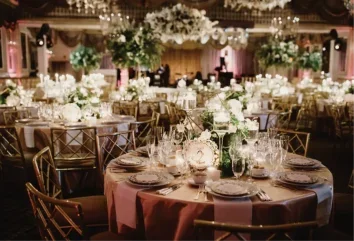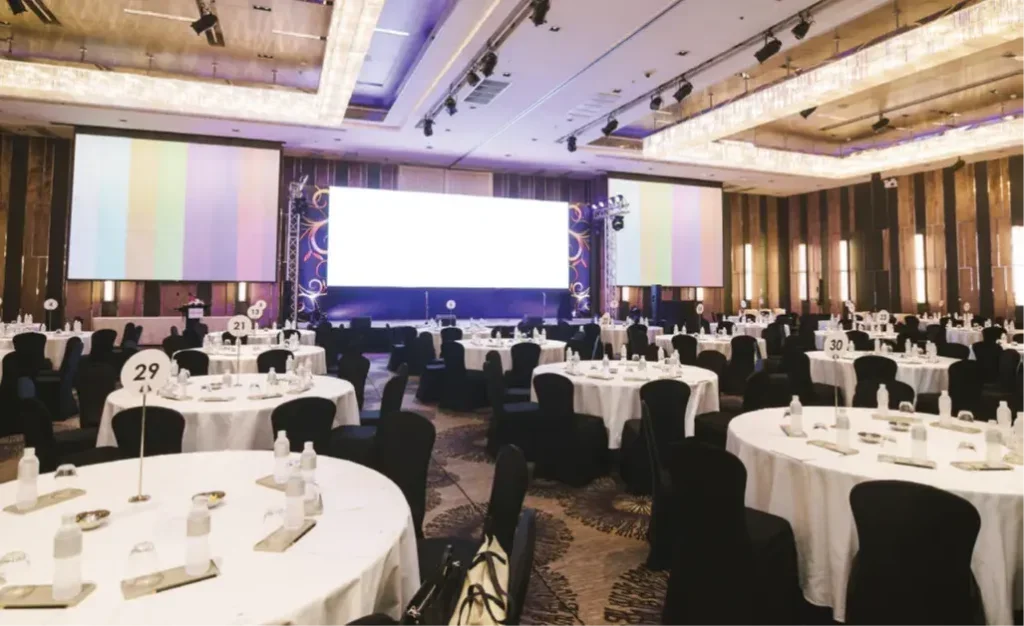
As we embrace the warmer weather and the promise of better days ahead, it’s not just the summer sunshine lifting our spirits, but also the resurgence of hope in the UK hospitality industry. Everything feels better at this time of year, but it’s good to see there’s statistical evidence that shows the positives aren’t merely down to the enhanced vitamin D of summer.
Over the past few months, here at HOSPA, we’ve worked in partnership with De Vere Hotels and hospitality benchmarking specialists Hotstats and Venue Performance to meticulously analyse the current state of play when it comes to conferences and events across the UK sector.
This has seen us compile a white paper (downloadable via our website) looking into the statistics in detail. The results of what we’ve uncovered are undeniably encouraging.
Post-pandemic
Although it may seem long ago now, with many of us banishing painful memories of the pandemic from our minds, it’s easy enough to recall the chaos it brought. The impact on the industry in general was enormous, but for conferences and events, the effects were even more profound. From largescale gatherings being stopped completely, to the staggered return to normal as official restrictions slowly fell away: the road to recovery for conferences and events was an arduous one.
But how has this facet of hospitality fared since? Is the recovery there, or is it still lagging? Are people still shunning larger-scale events despite the Covid pandemic having passed, with a new normal having set in? Has the business viewpoint of these events shifted?
These were the questions we sought to answer by digging into the detail.
Comparing the pre- and post-Covid landscapes, we uncovered clear and objective findings: the situation for conferences and events is looking very positive, with revenue levels practically back in line with pre-pandemic standards.
Across the board, there’s been an average 14% increase in the revenues generated by events, with meetings, conferences and banqueting performing particularly strongly. The rise in remote working means businesses are more inclined to come together in hospitality venues – opting for hotels and the like to bring teams and clients together. With faceto- face interactions no longer the day-to-day norm, meetings and events are increasingly important.
One thing in particular that was interesting to note though is that parties have experienced a significant decline. Gone, it seems, are the big boozy summer and Christmas parties of before. The more straitlaced sectors, such as finance and banking, which may, in the past, have splashed out on the opportunity for workers to let their hair down are now much more conscious of the optics. People are more mindful now of mingling too closely, while another factor is the rising cost of living and other economic dynamics. While serious events focused on business are admissible, the more ‘frivolous’ activities, such as parties don’t look as acceptable as they once were – and businesses are making a conscious effort to steer clear.
14%
The average percentage increase in the revenues generated by events, with meetings, conferences and banqueting performing well.
HOSPA
Nonetheless though, parties aside, both in London and regionally around the wider UK, conference and banqueting revenues have seen a remarkable transformation, and are now showing positive growth – and this is something we can all welcome.
Not all rosy
While we celebrate these positive trends, it’s essential to acknowledge the challenges faced by another significant sector of the hospitality industry: weddings.

Over the past few years, we have witnessed a decline in wedding bookings and venue reservations. Our white paper wasn’t focused on weddings, but if you speak to hotels and other hospitality venues on a regular basis, you’ll find there’s a common experience that wedding bookings are down. But it’s not just anecdotal evidence, again, the stats back this up. Venue Performance’s benchmarking stats highlight that wedding bookings are in steady decline as are the number of guests in attendance.
So, what is the cause here?
Of course, the cost of living is playing a large factor. With everything getting more and more expensive, the budget for weddings is a big expense that people are reluctant to engage in. Economic uncertainty means people will opt for smaller celebrations or postpone it – potentially indefinitely.
The pandemic is still having an impact here, too.
Post-pandemic there was a surge in wedding bookings as people took advantage of lifted restrictions to tie the knot. Now though, the boom has died down – and we’re into a curious phase where relationships that would traditionally be in the prime stage for a proposal are behind. Serious dating was tough during Covid – and there’s now a gap in the number of established couples who are ripe for a wedding. But is this a temporary lull or the signs of a broader malaise?
Social trends and attitudes towards marriage and relationships are changing, and this may also be contributing to this decline. Millennials and Gen Zs, in particular, are redefining traditional concepts of marriage, opting for more intimate and unconventional celebrations over large, extravagant weddings – or indeed not getting married at all. This shift in preferences has, naturally, led to a decrease in demand for traditional wedding venues and services.

Of course, though, while the decline in wedding bookings presents challenges for the hospitality industry, it also opens up opportunities for innovation and adaptation – something our brilliant sector is so adept at. Hospitality businesses can explore new ways to attract couples, such as offering more flexible wedding packages, promoting smaller, more intimate celebrations, and embracing new trends in wedding styles and themes. Change breeds innovation and, with conferences, meetings and banquets picking up the wedding revenue slack, I’m sure we’ll see wedding offerings adapt too to ensure continued viability. At HOSPA, we’ll be looking to explore the decline in weddings in more detail in the coming months.
On a slightly different note
We all know that working in hospitality isn’t always glamorous. In fact, it often involves dealing with challenging situations and unruly guests. But here’s the thing: these experiences, while sometimes frustrating, can also be incredibly enlightening and even entertaining.
That’s why we’re asking you to share your most memorable anecdotes with us. From outrageous guest behaviour to rooms left in chaos, we want to hear it all. But why, you might ask? Well, we’re putting together a ‘Good Guest Guide’ that uses these outrageous tales to highlight the good side of hospitality.
The message behind this initiative is a positive one. We want to show that working in hospitality is no easy feat and that it requires skill, patience and resilience. We want to highlight the hard work and team effort that makes hospitality such a rewarding career. By sharing these stories, we hope to not only entertain but also to promote courteous guest behaviour.
So, if you have any standout incidents you’d like to share, please email us at hospa@hospa.org with ‘Good Guests / Bad Guests’ in the subject line. Don’t worry, we can keep it anonymous if you prefer. We’ll be able to share more details as this project progresses, but in the meantime, we look forward to hearing your stories.






